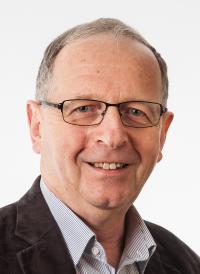Green Technologies in Chemical Engineering– new master’s degree (MSc) track at Warsaw University of Technology
With pride and pleasure, we inform you about the upcoming first admissions to our new master's degree track, Green Technologies in Chemical Engineering.
Read more to learn how Professor Andrzej Stankiewicz, the track supervisor, described this new track for second cycle studies.
The chemical process industry presents a critical element of the world’s economy and remains the leading employer of university graduates in chemical engineering. In the coming decades, the industry will play a crucial role in addressing grand societal challenges related to sustainability, human health or availability of food and clean water. The necessary transition of the chemical sector to address those challenges will include, among other things, decarbonisation, the use of renewable energy and raw materials in manufacturing processes and the circular economy. Some global trends are already clearly marked and will shape the profile and performance of the chemical industry in the decades to come. These global trends include extensive use of Information Technology (digitalisation) in process development and manufacturing, electrification and modularisation of production facilities, or new methods of producing advanced materials (e.g., materials for medical applications).
The current English-language MSc track Green Technologies in Chemical Engineering (GTCE) presents a novel approach to chemical engineering education. It addresses the challenges that await us in the coming decennia. Its philosophy and purpose are to provide students with a comprehensive knowledge of the fundamentals of chemical engineering with in-depth insights into new, sustainability-related topics that will be the main areas of interest and activities of the chemical processing sector.
Consequently, students of the GTCE track, in addition to advanced knowledge in the field of basic elements of chemical engineering, such as mass and heat transport phenomena, applied fluid mechanics, kinetics, catalysis and reactor design, or optimisation of chemical processes, will obtain extensive information in topics closely related to sustainable development, including, among other things, conversion and accumulation of energy, biomass processing, methods of process intensification, electrochemistry and renewable energies, waste management or digitalisation of production processes.
An essential and unique feature of the new track is guest lectures provided online by experts from leading foreign universities and industrial companies.
prof. Andrzej Stankiewicz
The GTCE track is led and coordinated by Andrzej Stankiewicz, Full Professor at Warsaw University of Technology and Delft University of Technology, The Netherlands, and former Director of TU Delft Process Technology Institute. With 45 years of industrial and academic research experience, he is the author of numerous scientific publications on process intensification, chemical reaction engineering and industrial catalysis. Prof. Stankiewicz is one of the pioneers of process intensification. He is co-author and editor of the world’s first book on Process Intensification: Re-Engineering the Chemical Processing Plant and the principal author of another book, The Fundamentals of Process Intensification. Andrzej Stankiewicz is the former Editor of Elsevier’s journal Chemical Engineering and Processing: Process Intensification. Presently, he is the Editor-in-Chief of the journal Chemical and Process Engineering: New Frontiers (Polish Academy of Sciences) and Series Editor of the Green Chemistry Books Series (Royal Society of Chemistry). Professor Stankiewicz was the founder and first Chairman of the Working Party on Process Intensification in the European Federation of Chemical Engineering. He currently chairs the Board of the European Process Intensification Centre (EUROPIC). Prof. Stankiewicz's research interests focus on intensifying chemical processes using electricity-based energy (e.g., microwaves, plasma, UV). In this field, Professor Stankiewicz was awarded, among others, the prestigious ERC Advanced Investigator Grant by the European Research Council for researching “perfect chemical reactors”.


